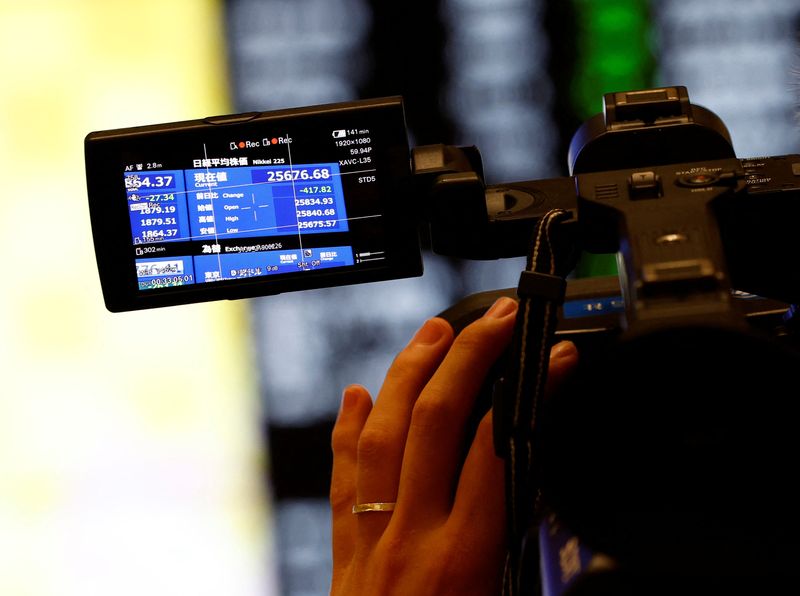By Kantaro Komiya
(Reuters) -A Tokyo Stock Exchange employee is under investigation by the country’s financial watchdog for suspected insider trading, its parent company Japan Exchange Group (JPX) said on Wednesday.
The Securities and Exchange Surveillance Commission (SESC) is investigating the employee, and JPX will fully cooperate with the probe, the company said in a statement.
“We would like to offer our sincere apologies for the inconvenience and concern this will cause among our listed companies and other related parties,” JPX said.
Broadcaster TBS reported, citing a source, that the employee, a man in his 20s, was suspected of providing information on listed companies’ tender offers multiple times this year to a relative of his.
TBS said the relative used the information to make at least several hundreds of thousands of yen worth of profit from equity trading.
The SESC investigation began around September, according to the Nikkei newspaper, which first reported the news.
Neither the employee nor the company stocks allegedly traded were identified by JPX or in the media reports.
A JPX spokesperson told Reuters the company had no further comment to make at present beyond its statement.
The latest news come days after another report of suspected insider trading by a judge who was on temporary assignment to Japan’s Financial Services Agency. The SESC in August launched a probe into the judge for allegedly trading shares based on undisclosed information learned on the job, according to local media reports.
A spokesperson for the SESC declined to comment on the cases.
It was “extremely regrettable” that the members of market authorities came under SESC investigation, deputy chief cabinet secretary Kazuhiko Aoki said.
“We must make every effort to prevent recurrence and ensure trust in Japan’s financial markets,” Aoki, a government spokesperson, told a regular press conference.
Insider trading violates Japan’s Financial Instruments and Exchange Act. Offenders face up to five years in prison, a fine of up to 5 million yen ($33,097), or both.
($1 = 151.0700 yen)

